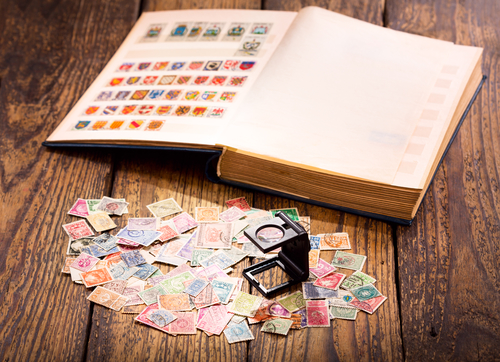Special to the Financial Independence Hub
For your entire adult life, you saved diligently for retirement, but if you want to make the most of your savings, you need to remain healthy for as long as possible. Being physically active will keep your body in good shape, but your mind also needs exercise as you age — which is why you should consider starting a collection.
Humans have a drive to collect things; it’s what helps our species survive and thrive in an unpredictable environment. However, now that you have the time, you can begin collecting items of interest that you can show off to friends and fellow collectors. Here are a few benefits to starting a collection so you can be happy and healthy for decades after you retire:
Reduce Stress
Stress is terrible for the mind and soul, but it does dreadful things to the body, too. Research shows that excess stress ages your body’s cells prematurely, causing all sorts of age-related diseases, such as Alzheimer’s and hearing and vision loss, before you might naturally develop them. Unquestionably, the less stress you have in your life, the better.
Research also shows that having hobbies can reduce stress as well as exercise, which is to say: quite a lot. Unless you feel like going for a run ― and few retirees can truthfully say they do ― you might start finding something to collect to cut down your stress.
Appreciate Beauty
There is beauty in the world, and with the right collections, you can prove it. Artwork, jewelry, books, and even droll items like stamps and coins can be evidence of the sublime. It doesn’t hurt to have pretty things around you, but you do have to locate and gather the things you find most precious and appealing.
Continue Learning
It’s well-known that continuing to exercise your brain with puzzle games like crosswords can stave off age-related mental diseases like Alzheimer’s and dementia, but the truth is any way you can stay mentally active will keep your brain young. Continuing education stimulates your memory, activates your critical thinking, and sets off your excitement to help you stay younger longer.
Though collecting anything requires extensive learning, collecting antiques, like old currency, requires specialized knowledge that might require a few history courses at your local college. For example, to truly appreciate the story of a 1934 silver certificate one-dollar bill, you would need to study the evolving political motivations behind the look of the American dollar. That is a brain workout you aren’t likely to find elsewhere in retirement.
Socialize More
As you get further into retirement, you might notice that social events become fewer and farther between. You might prefer to stay in for a variety of reasons, but isolation can wreak havoc on your health. Studies indicate that lonely people increase their risk of early death by 45 per cent as well as their risk of developing dementia by as much as 64 per cent.
No matter what type of collecting interests you, there is likely an extant community eagerly awaiting new members. Collecting provides built-in social opportunities, and you can connect with fellow collectors online or in-person.
Feel Competitive
While you might not be able to run a five-minute mile, do 100 one-handed push-ups, or even divide three-digit numbers without a calculator in under 30 seconds, you still probably feel the need to push your limits and compete with others. Unfortunately, after retirement, there isn’t an overabundance of opportunities to indulge your competitive drive ― except collecting.
Not only do fellow collectors constantly try to one-up one another with newer and more astounding collectibles, but you can compete with yourself, trying to better your existing collection with more valuable items. There is challenge, and there is thrill, though non-collectors might not truly understand the satisfaction of competition.
Contribute to Knowledge
Even if you eventually lose interest in collecting or choose to devote your energies to a different hobby, your efforts will not be wasted. Your fellow collectors will accept whatever artifacts you gathered, and new collectors will eagerly receive any tips and tricks you learned while you amassed your stash.
Plus, if you collected historically relevant items, you can donate your collection to a museum or university, where others can see your hard work and learn about the past as you did. Your collection can be the legacy of your retirement, which could keep you young for eternity.
 Cher Zevala is a content coordinator who assists in contributing quality articles on various topics. In her free time she also enjoys hiking, traveling and getting to know the world around her. Cher has built up many strong relationships over the years within the blogging community and loves sharing her useful tips with others.
Cher Zevala is a content coordinator who assists in contributing quality articles on various topics. In her free time she also enjoys hiking, traveling and getting to know the world around her. Cher has built up many strong relationships over the years within the blogging community and loves sharing her useful tips with others.



